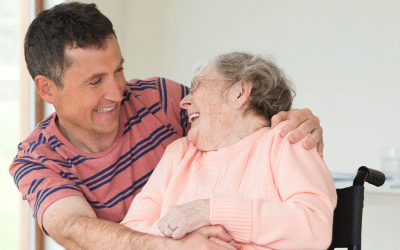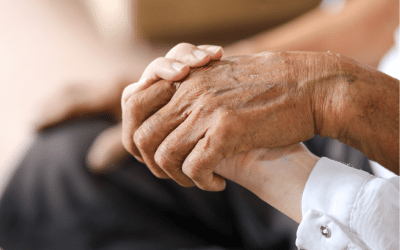In response to the alarming reports and various social movements’ reclamations on the critical situation in French nursing homes (“EHPAD’s), Agnès Buzyn the Health and Solidarity Minister presented the Government’s plan for the elderly, following the efforts undertaken by the French National Solidarity Fund for Autonomy (“CNSA”) and the Assembly of French Departments on May 30.
Last year, there were 1.5 million inhabitants over 85 years old in France, but by 2050 they will number up to 4.8 million. Based on these figures, the Health Minister has declared some emergency measures which are intended to help improve the quality of life and the autonomy for the elderly.
The government’s priority will mainly focus on prevention, both at home and in institutions. In 2018, 15 million € will be allocated, followed by 30 million € starting in 2019, for prevention policies in nursing homes which the regional health agencies will oversee. Opinion surveys in the nursing homes to verify the appropriate measures will be carried out by the High Authority for Health (“HAS”). In addition, strategic measures will be implemented to address the ever-increasing needs for medical care.
- 360 million € will be attributed to the French nursing homes “EPHAD’s” from 2019 to 2021 to recruit additional nursing staff.
- 36 million € will be budgeted for hiring night shift nurses, on a standard basis by 2020, to reduce cases of preventable admissions to the ER, and ensure appropriate night care.
- 40 million € will be allocated from 2018-2022, in order to install widespread and standardized access to telemedicine for the “EHPAD’s”.
- 15 million € will be financed by health insurance plans, starting in 2019, to add 1,000 temporary beds to the existing “EHPAD’s” for patients being discharged from hospital in order to facilitate their return home.
- A minimum of 100 million € in the annual budget, starting in 2019 will be given to help renovate the “EHPAD’s”
- 16 million € will be allocated by 2020 to reinforce the number and the mobility of geriatric personnel.
Other strategies are being developed to encourage home care by adapting living spaces, and proposing support for home care-givers, but also measures for improving work conditions for professionals in nursing homes.
Despite the fact that the government has promised a substantial financial budget, various professionals in health care for the ageing maintain that these strategies only partially respond to the challenge of caring for the ageing population. The French Professional Federation of Directors of Health Care Establishments for the Ageing (“FNADEPA”) laments the lack of commitment to reinforcing human resources, encouraging the fidelity of professional heath caregivers, and tackling the need for better professional recognition. One of the most critical issues involves how to increase the number of caregivers compared to the number of patients. Yet, the financial budget announced will not attain the recommended ratio of 60 carers per 100 patients (as recommended by the MPs Monique Iborra and Caroline Fiat’s report for the “EHPAD” crisis situation (March 2018).
After having announced these initial measures, the Health and Solidarity Minister now intends to open a national discussion to obtain a larger input from health professionals and French citizens, and reflect on the situation: how can society respond to aging and funding care for the elderly who lose their autonomy. The stated objective is to formulate proposals before 2019. To avert discussions uniquely based on financial constraints, the minister urges a reflection based on the following questions:
- How do we define our future priorities for the elderly, confronted with the loss of autonomy, and based on accessible goods and services?
- How can we ensure contributions from all spheres of society to sustain funding, based on solidarity, when facing the loss of autonomy?
- How can national and territorial government policies be modified to protect the ageing population and their loss of autonomy?



